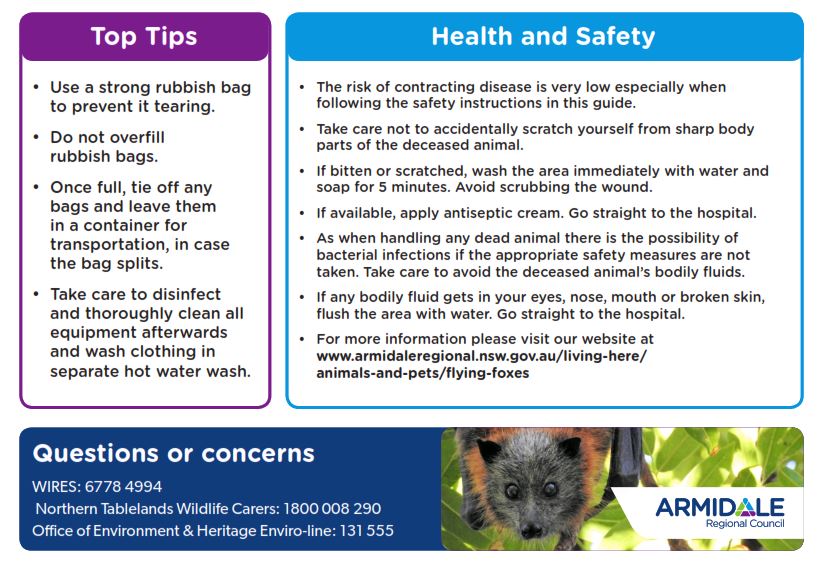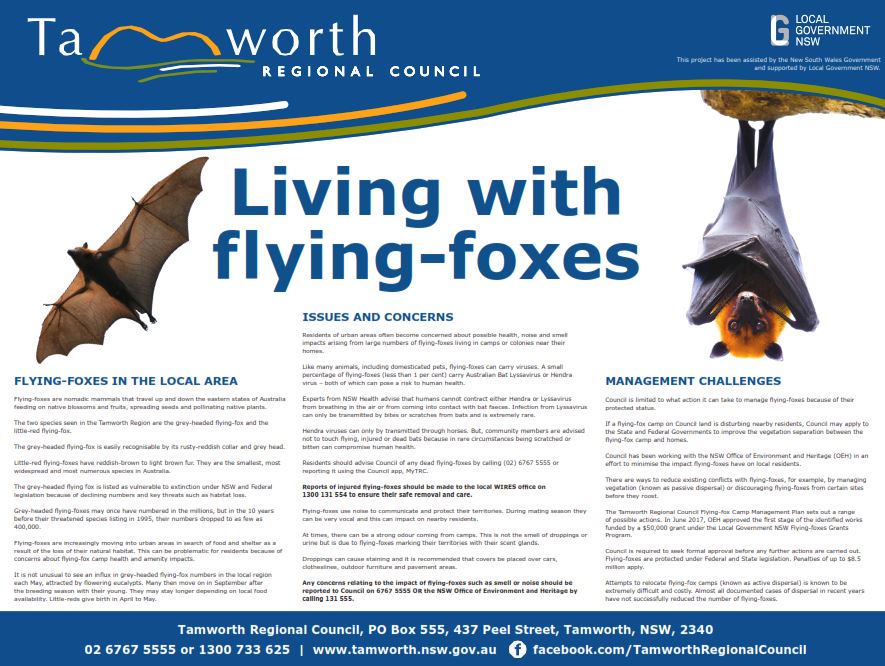Flying-foxes are intelligent, social animals that live in large colonies comprised of individuals and family groups. They roost in trees during the day and establish permanent and semi-permanent camps near food sources and for birthing.
They use various calls as a form of communication, tending to make the most noise at dawn and dusk, when flying out to feed at night or returning to camp trees to sleep during the day. They can get pretty noisy when they are disturbed, but during the day, flying-foxes are generally quiet if undisturbed.














